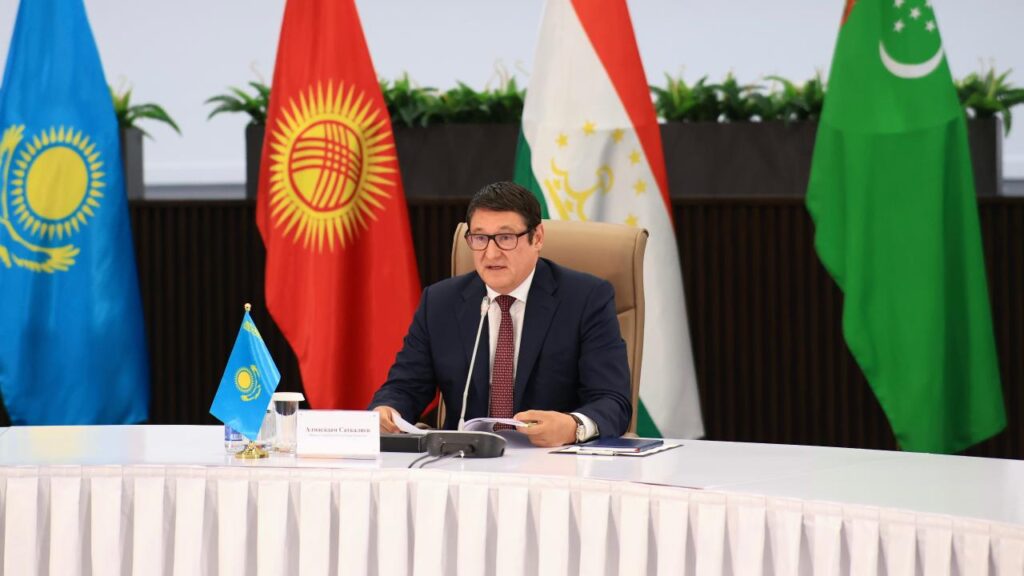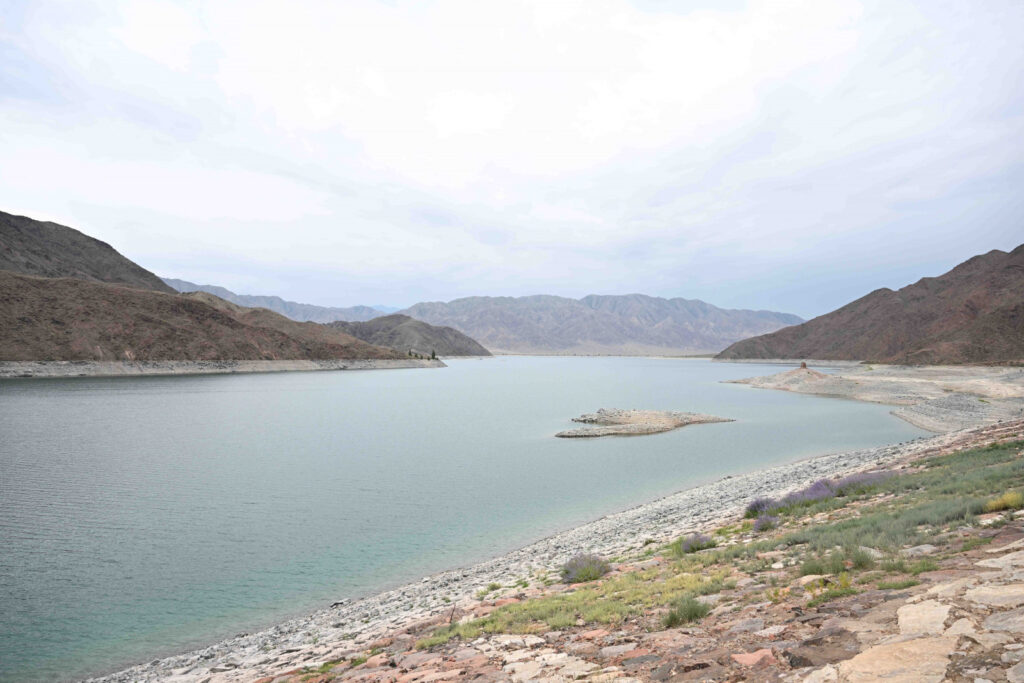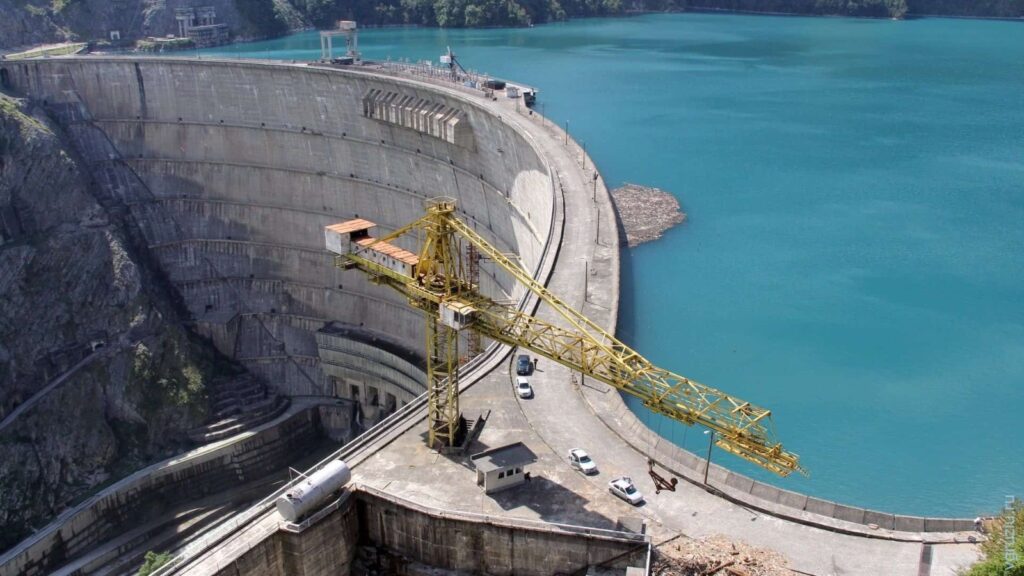Viewing results 1 - 6 of 11
On August 6, Astana hosted the first meeting of energy ministers of Central Asian states, chaired by Kazakhstan’s Minister of Energy Almasadam Satkaliyev. Noting the considerable potential for developing energy cooperation between the five Central Asian countries, Minister Satkaliyev stated that today, the challenges faced by the Central Asian countries include global disruptions of the stability of energy supplies and fluctuations in oil and gas prices. "To ensure the reliability of energy supplies, it is necessary to develop mechanisms for forecasting and managing these challenges and to strengthen cooperation between our countries," ventured Satkaliyev. Calling on his colleagues to strengthen cooperation in energy trade, speed up low-carbon development, and move towards achieving carbon neutrality, the minister stressed, "An important factor in the development of regional cooperation is the comprehensive attraction of investments and the implementation of large joint technological projects in the energy sector to stimulate the development of modern energy infrastructure in Central Asian countries." Satkaliyev added that Kazakhstan is currently progressing the implementation of a large-scale project in the development and transmission of green energy with Azerbaijan and Uzbekistan, as well as continuing discussions on the planned construction of a central hydroelectric power plant, Kambarata HPP-1, with Kyrgyzstan and Uzbekistan. Following the meeting, the Central Asian energy ministers signed a communiqué, laying the foundation for further cooperation in all key energy areas between the countries.
On June 29, Chairman of the Cabinet of Ministers of the Kyrgyz Republic, Akylbek Japarov, attended the opening ceremony of the construction of a small hydroelectric power plant at the Orto-Tokoy reservoir in the Issyk-Kul region. Constructed by the China National Machinery Industry Corporation, the new plant will have a capacity of 21 MW and provide electricity to more than 14 thousand consumers of the city of Balykchy. In his address at the launch, the president referencing the recent launch of the Bala-Saruu hydroelectric power plant and the imminent construction of a hydro power plant on the Papan reservoir, announced: “We are taking confident steps towards energy independence. The national project of Kambarata HPP-1 is gaining momentum, with a committee of representatives of international organizations and financial institutions created [for its construction]. The implementation of these projects will provide an opportunity for Kyrgyzstan to become a major hydropower nation.”
The amount it will cost to build the Bala-Saruu HPP in the Talas region of Kyrgyzstan has been announced, 24.kg reports. Ulan Astarkulov, Director of Chakan HPP, told Birinchi Radio that the Ministry of Finance of the Kyrgyz Republic has allocated a budget loan of 2 billion som ($22.7 million). Later, the Russian-Kyrgyz Development Fund allocated an additional 882 million som. According to Astarkulov, the production capacity of the HPP will cover 60-70% of the electricity demand in the Talas region. A presidential order on the construction of the HPP was signed on July 2, 2021. The Bala-Saruu HPP construction project involves the construction of a HPP with three generators with a total capacity of 25 megawatts and an average annual electricity production of 92 million kWh. The operation mode of the HPP will be regulated under the irrigation regime and water flow from the Kirov Reservoir. The feasibility study of the project was developed by a Norwegian company. Equipment has been imported from Austria, Russia, and Uzbekistan.
Kyrgyzstan's Ministry of Energy and the China National Electric Engineering Co. Ltd. (CNEEC) have signed a memorandum of cooperation. The document provides for the construction of the Suusamyr-Kokomeren cascade of hydroelectric power plants and Kara-Keche thermal power plant, the ministry announced on January 24th. The Suusamyr-Kokomeren hydropower cascade will consist of three hydroelectric power plants with a total capacity of 1,305 MW and an annual electricity generation of 3.3 billion kilowatt-hours. These are the Karakol hydroelectric power plant (33 MW), Kokomeren HPP-1 (360 MW), and Kokomeren HPP-2 (912 MW). The Kara-Keche thermal power plant, which will be built at the Kara-Keche coal deposit in the country’s Naryn region, will have a capacity of 600 MW, the ministry said. In recent years Kyrgyzstan has been looking for foreign investment to build new power generation facilities. Kyrgyzstan has for years experienced chronic power shortages, especially in the cold winter months, and has to import electricity from neighboring Kazakhstan, Uzbekistan, and Turkmenistan to meet its growing power needs.
Energy companies from France and the UAE plan to invest in hydropower and renewable energy projects with a total capacity of 3.6 gigawatts in Kyrgyzstan. The capacity of the Toktogul hydroelectric station is already more than 1.2 gigawatts. The President of the Kyrgyz Republic expressed confidence that the practical implementation of the agreements will soon begin. As part of the World Climate Summit in Dubai, the Ministry of Energy of the Kyrgyz Republic, the French company EDF, and the UAE state company, Masdar signed a memorandum in the energy sector. The foreign partners assured that summit they are ready to cooperate with the Kyrgyz Republic and implement the projects provided for in the memorandum. In his speech, Energy Minister, Taalaibek Ibraev focused on the potential of Kyrgyzstan in the field of electricity generation and further cooperation with investors. The signing ceremony took place in the presence of President Sadyr Japarov, after which further negotiations took place with representatives of both companies. Japarov emphasized that the Kyrgyz side will provide everything necessary to ensure high-quality implementation of the terms of the memorandum, the presidential press service reported. Japarov also called on participants at the meeting to pay special attention to the hydropower potential of the Kyrgyz Republic, which today no more than 13% of has been utilized. He emphasized that the country has taken a firm course towards the development of a “green” economy. Masdar representatives noted the importance of the solar power plant construction project being implemented in the Issyk-Kul region, and stated that they would use their experience “to support Kyrgyzstan’s clean energy goals”.




